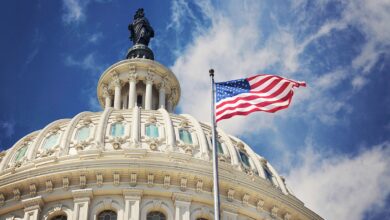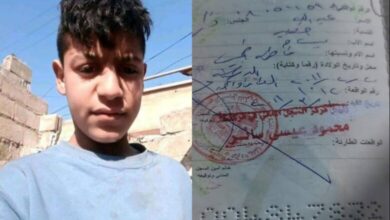
Assad regime, allies slapped with US sanctions; more to come
Yekiti Media
The United States Wednesday announced highly anticipated economic sanctions against Syrian President Bashar al-Assad, his regime and anyone who attempts to do business with them to deny revenue and support to the Assad regime.
US President Donald Trump signed the Caesar Syria Civilian Protection Act, also referred to as the Caesar Act, six months ago. Much discussion revolved around the law and what and who it targets.
In its first batch, Washington slapped 39 designations on individuals and entities Wednesday in what it said was the “beginning of what will be a sustained campaign of economic and political pressure to deny the Assad regime revenue and support.”
Among the most notorious names to be sanctioned were Assad himself, his wife Asma, his younger brother Maher and their sister Bushra.
In the statement released by US Secretary of State Mike Pompeo, he made a “special note” of Asma’s designation for the first. Pompeo said that with the support of “her husband and members of her Akhras family has become one of Syria’s most notorious war profiteers. Now anyone doing business with any of these persons or entities is at risk of sanctions.”
Maher’s Fourth Division of the Syrian Arab Army and its leadership were also hit with sanctions.
The Iranian militia fighting in Syria, the Fatemiyoun Brigades, were included in the list alongside the “funder of these atrocities Mohammed Hamsho.”
Hamsho’s son and other family members have been sanctioned too. Hamsho is a Syrian business tycoon and the head of Syria’s outreach to the Gulf, according to Financial Times.
More sanctions are anticipated, something a US State Department official confirmed to Al Arabiya English. “There is more to come!” the official said.
Humanitarian assistance will continue
Humanitarian assistance for the Syrian people will not be targeted by the new law nor will it “hinder our stabilization activities in northeast Syria,” Pompeo said.
And Washington will continue its humanitarian aid “even in areas under regime control.”
Pompeo said the economic and political pressure would not stop until Assad and his regime halt their “needless, brutal war against the Syrian people and the Syrian government agrees to a political solution to the conflict as called for by UNSCR 2254.”
For Assad himself and those that continue to support his regime, Pompeo said there two choices: “Take irreversible steps toward a lasting political solution to the Syrian conflict in line with UNSCR 2254 or face ever new tranches of crippling sanctions.”
“It is time for Assad’s needless, brutal war to end,” the top US diplomat said.
White House statement
Meanwhile, the White House released a statement saying that the targets of Wednesday’s sanctions include “regime-loyalists, Syrian financiers supporting corrupt reconstruction efforts, and individuals actively involved in the ceasefire disruption in northern Syria.”
No individual or business should do business with or otherwise enrich “such a vile regime,” the statement read.
But the White House was quick to say that the sanctions were meant to hold the “murderous Assad regime accountable. They are not directed at the Syrian people.”
Echoing the State Department’s statement, the White House said it was committed to a lasting political solution in Syria. “The Assad regime and its patrons must recognize that a political resolution is the only viable mechanism to bring a peaceful end to the Syrian conflict.
Syrian response
Syria responded to the sanctions later Wednesday calling them a “violation of all international laws and customs.”
Quoting an official source from the Syrian Ministry of Foreign Affairs, the country’s state-run news agency criticized “the level at which the officials of this [US] administration had descended.”
alarabiya




